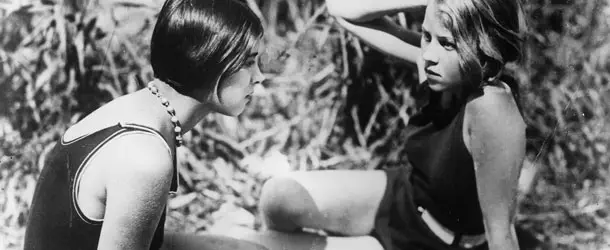Múm’s Örvar Smárason tells Neil Mudd why People On Sunday is the greatest film you’ve probably never heard of.

There is a lovely moment in the film, People On Sunday, where ordinary Berliners, relishing a sunny afternoon in the park, pose to have their photograph taken. Their inelegant faces – mostly since airbrushed from cinema’s visual lexis – peer shyly at us from out of the past.
But this is Germany in 1930 and dark forces are gathering: ‘It’s so beautiful. And, of course, because we see it from our viewpoint, our vantage point of history, we feel an undercurrent: it would have been one of the last Sunday afternoons like that.’
Örvar Smárason, whose band Múm performs a live accompaniment to People On Sunday at the Howard Assembly Room next week, is speaking via Skype from his studio in Iceland. He first encountered the film while studying for a degree in screenwriting at FAMU, the iconic Czech film school in Prague. ‘I remember the exact scene where I thought this would be the perfect film for us to do,’ he says. ‘(The characters) are on a bicycle boat. There was just something about the sun glittering on the water – and I thought this is like the music I want to do right now.’
People On Sunday is a remarkable film, a snapshot of an end of days Weimar Republic about to be consumed in the firestorm of Nazism. It is an unlikely collaboration between filmmakers Billy Wilder, Curt and Robert Siodmak, Fred Zinnemann and Edgar G Ulmer, all of whom would soon-after escape Germany for Hollywood, and produce some of Tinsel Town’s finest, darkest, most satisfying movies. ‘One of the reasons we did the film is because not a lot of people seem to have heard of it,’ explains Örvar. ‘It hadn’t really gained as much cult status as some other films from that time like Fritz Lang.’
At the Leeds International Film Festival in 2014, People On Sunday was screened with composer Neil Brand playing a semi-improvised live jazz score. Múm’s itchy fusion of traditional instrumentation and wonky electronica promises a very different complexion: ‘You can play much more with the characters, breathe with the characters,’ agrees Örvar. ‘It is so different from most films from that era. I haven’t seen another film that has exactly this style or flavour, this exact vibe.’
People On Sunday is experimental cinema, for sure, but not in the strictly austere sense of that term; it is not Man With A Movie Camera, for example. ‘In Berlin there was this New Objectivity movement at the time that was a lot about incorporating reality,’ Örvar explains, ‘but also it was so dramatic, a lot to do with social reality.’ With its refreshing use of non-actors and actual locations, People On Sunday weaves a sensuous, surprisingly frank narrative of four young Berliners spending Sunday together: ‘There’s a lot about the friendship of the two girls, the main characters,’ Örvar adds. ‘That is what I connect most with in the film.’
This is not the Icelandic collective’s first experience of live scoring movies. ‘When we were starting out sixteen or seventeen years ago, (there) was a bi-monthly show in Reykjavik for electronic musicians,’ Örvar recalls. ‘They would play two films a night and everyone would come up and improvise.’ A few years later, with Múm more established, the band was asked to provide a new score for Soviet film masterpiece, The Battleship Potemkin. With its celebrated Odessa Steps sequence, the film pioneered a startlingly visceral use of montage – what director Sergei Eisenstein called ‘kino-fist.’ This placed stricter, less organic constraints than perhaps the band would have liked. ‘Not to be negative, but it’s so structural. And that dictated what we did in the music. We tried to go against it – and in some places it worked – but the structure of the film dictated what we were doing.’
When the opportunity arose to tour again with a film, the band was reluctant to resurrect Potemkin. ‘It was a really heavy score, so we never really felt excited about doing it again,’ confesses Örvar. It was then that he remembered People On Sunday which offered ‘a freedom’ the band could work with. It was ‘completely different.’
Last year, the band performed People On Sunday in front of a Berlin audience which must have felt like a form of homecoming. “It felt really nice to be playing it there in the city where it was filmed,’ agrees Örvar. ‘The thing with Berlin is it doesn’t feel like Germany somehow, it’s so international.’
Despite pressing work commitments – Múm plays a one-off concert at the Walt Disney Concert Hall in Los Angeles in July, while Örvar has a solo show at the Sonar Festival lined up – there are tentative plans to perform People On Sunday as an outdoor show in one of the actual parks in the film: ‘We don’t know if that’s going to work,’ Örvar cautions. ‘But that would be the homecoming.’
Múm present People On Sunday at the Howard Assembly Room, Friday 3rd March at 19.45. For more information and tickets, click here.
Culture Vulture’s review of People On Sunday from LIFF28.
Follow Neil Mudd on Twitter: @ANMudd